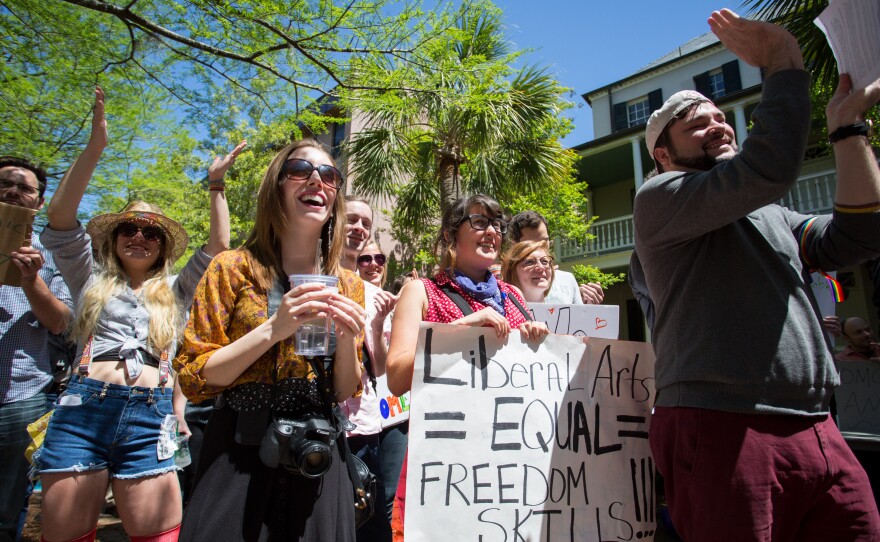House lawmakers in South Carolina have voted to slash funding for two of the state's largest public colleges in retaliation for the introduction of books with gay themes into the schools' freshman reading programs.
In February, the South Carolina House of Representatives voted to cut $70,000 — the entire cost of the programs — from the College of Charleston and the University of South Carolina Upstate.
The Senate is debating the state budget this week, and multiple efforts to reinstate the funds have thus far failed.
The College of Charleston had assigned incoming students to read "Fun Home," a graphic novel about the author's struggle with her family and sexual orientation that includes illustrations of lesbian sex. The University of South Carolina Upstate selected "Out Loud: The Best of Rainbow Radio," a compilation of radio stories about being gay and lesbian in the South for a similar program.
Fun Home, by Alison Bechdel, was also developed into a Pulitzer-nominated off-Broadway musical. Last month, the New York cast of the play traveled to Charleston to perform it in support of the students, striking back at lawmakers who voted for the cuts.
One lawmaker who took offense was Republican Rep. Garry Smith. "Any freedom, including academic freedom, comes with responsibility," Smith told NPR. "You can't run into a crowded theater and shout fire when there's no fire."
Smith says the college failed to present multiple perspectives about the novel. "You need to discuss it from a true academic debate standpoint which looks at all aspects of it. That was not done," he says.
Students, for their part, have organized demonstrations and phone banks, urging the governor to block the threatened cuts.
Some College of Charleston students also see the move as part of a larger effort to control political discourse at the school. They say that, in addition to the funding cuts, the GOP-controlled legislature recently handpicked one of their own to run the college.
South Carolina Lt. Gov. Glenn McConnell, a conservative Republican, was recently selected to become the college's next president. Media reports suggest the college's governing board chose him under pressure from lawmakers, and against the advice of a search committee.
"It just reeked of insider dealings, backroom political maneuvers and political and economic pressure being put on the board of trustees," says student Matt Rabon, who has been protesting the appointment.
McConnell spent more than 30 years in the state Senate. And he's known for his affection for Civil War history and the Confederate flag.
McConnell did not agree to an interview with NPR. But he has the support of at least one well-known Democrat, longtime Charleston Mayor Joe Riley. "He's a good guy. And a very nice, hardworking person," the mayor says. "I think he'll be an excellent college president."
Political writer Andy Brack, who runs the political website Statehouse Report, says state lawmakers likely see in McConnell an opportunity for more control of the college. He says choosing McConnell may be the price the college was willing to pay for a stronger relationship with the legislature.
"It's tough being a college president these days," he says. "And one might think that a reason McConnell was hired is that he understands state budgeting and the relationships with the legislature, which has a big control over the universities in this state."
While McConnell's selection prompted students to stage a sit-in, he'll assume his new role as president of the College of Charleston at a quieter time on campus, on July 1, when most students are away. Copyright 2014 Georgia Public Broadcasting. To see more, visit http://www.gpb.org/.
Copyright 2014 NPR. To see more, visit http://www.npr.org/






